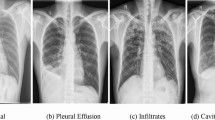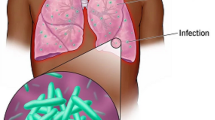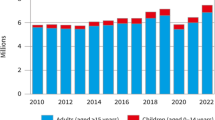Abstract
Tuberculosis (TB) is known as a potentially dangerous and infectious disease that affects mostly lungs worldwide. The detection and treatment of TB at an early stage are critical for preventing the disease and decreasing the risk of mortality and transmission of it to others. Nowadays, as the most common medical imaging technique, chest radiography (CXR) is useful for determining thoracic diseases. Computer-aided detection (CADe) systems are also crucial mechanisms to provide more reliable, efficient, and systematic approaches with accelerating the decision-making process of clinicians. In this study, we propose voting and preprocessing variations-based ensemble CNN model for TB detection. We utilize 40 different variations in fine-tuned CNN models based on InceptionV3 and Xception by also using CLAHE (contrast-limited adaptive histogram equalization) preprocessing technique and 10 different image transformations for data augmentation types. After analyzing all these combination schemes, three or five best classifier models are selected as base learners for voting operations. We apply the Bayesian optimization-based weighted voting and the average of probabilities as a combination rule in soft voting methods on two TB CXR image datasets to get better results in various numbers of models. The computational results indicate that the proposed method achieves 97.500% and 97.699% accuracy rates on Montgomery and Shenzhen datasets, respectively. Furthermore, our method outperforms state-of-the-art results for the two TB detection datasets in terms of accuracy rate.






Similar content being viewed by others
Explore related subjects
Discover the latest articles and news from researchers in related subjects, suggested using machine learning.References
Antani S (2020) Tuberculosis chest x-ray image data sets. https://lhncbc.nlm.nih.gov/publication/pub9931. Accessed April 2021
Ayaz M, Shaukat F, Raja G (2021) Ensemble learning based automatic detection of tuberculosis in chest x-ray images using hybrid feature descriptors. Phys Eng Sci Med. https://doi.org/10.1007/s13246-020-00966-0
Brochu E, Cora VM, De Freitas N (2010) A tutorial on Bayesian optimization of expensive cost functions, with application to active user modeling and hierarchical reinforcement learning. arXiv preprint arXiv:10122599
Buslaev A, Iglovikov VI, Khvedchenya E, Parinov A, Druzhinin M, Kalinin AA (2020) Albumentations: fast and flexible image augmentations. Information 11(2):125. https://doi.org/10.3390/info11020125
Cayamcela MEM, Lim W (2019) Fine-tuning a pre-trained convolutional neural network model to translate American sign language in real-time. In: 2019 international conference on computing, networking and communications (ICNC), IEEE, pp 100–104. https://doi.org/10.1109/ICCNC.2019.8685536
CDC (2020) Tuberculosis (tb). https://www.cdc.gov/tb/topic/basics/default.htm. Accessed April 2021
Chauhan A, Chauhan D, Rout C (2014) Role of gist and phog features in computer-aided diagnosis of tuberculosis without segmentation. PLoS ONE 9(11):e112980. https://doi.org/10.1371/journal.pone.0112980
Chollet F (2017) Xception: deep learning with depthwise separable convolutions. In: Proceedings of the IEEE conference on computer vision and pattern recognition, pp 1251–1258. https://doi.org/10.1109/CVPR.2017.195
Dong X, Yu Z, Cao W, Shi Y, Ma Q (2020) A survey on ensemble learning. Front Comput Sci. https://doi.org/10.1007/s11704-019-8208-z
Fawcett T (2006) An introduction to roc analysis. Pattern Recognit Lett 27(8):861–874. https://doi.org/10.1016/j.patrec.2005.10.010
Hernández A, Panizo Á, Camacho D (2019) An ensemble algorithm based on deep learning for tuberculosis classification. In: International conference on intelligent data engineering and automated learning. Springer, pp 145–154. https://doi.org/10.1007/978-3-030-33607-3_17
Hernández-García A, König P (2018) Further advantages of data augmentation on convolutional neural networks. In: International conference on artificial neural networks. Springer, pp 95–103. https://doi.org/10.1007/978-3-030-01418-6_10
Hwang S, Kim HE, Jeong J, Kim HJ (2016) A novel approach for tuberculosis screening based on deep convolutional neural networks. In: Medical imaging 2016: computer-aided diagnosis, international society for optics and photonics, vol 9785, p 97852W. https://doi.org/10.1117/12.2216198
ImageNet (2016) Imagenet database. http://www.image-net.org. Accessed April 2021
Jaeger S, Candemir S, Antani S, Wáng YXJ, Lu PX, Thoma G (2014) Two public chest x-ray datasets for computer-aided screening of pulmonary diseases. Quant Imaging Med Surg 4(6):475. https://doi.org/10.3978/j.issn.2223-4292.2014.11.20
Kaggle (2018) U-net lung segmentation (montgomery + shenzhen). https://www.kaggle.com/eduardomineo/u-net-lung-segmentation-montgomery-shenzhen/data. Accessed April 2021
Khan A, Sohail A, Zahoora U, Qureshi AS (2020) A survey of the recent architectures of deep convolutional neural networks. Artif Intell Rev. https://doi.org/10.1007/s10462-020-09825-6
Kumar A, Kim J, Lyndon D, Fulham M, Feng D (2016) An ensemble of fine-tuned convolutional neural networks for medical image classification. IEEE J Biomed Health Inform 21(1):31–40. https://doi.org/10.1109/JBHI.2016.2635663
LeCun Y, Bengio Y, Hinton G (2015) Deep learning. Nature 521(7553):436–444. https://doi.org/10.1038/nature14539
Lopes U, Valiati JF (2017) Pre-trained convolutional neural networks as feature extractors for tuberculosis detection. Comput Biol Med 89:135–143. https://doi.org/10.1016/j.compbiomed.2017.08.001
MathWorks (2020) Bayesian optimization algorithm. https://www.mathworks.com/help/stats/bayesian-optimization-algorithm.html. Accessed April 2021
Noor NM, Rijal O, Fah CY (2002) Wavelet as features for tuberculosis (mtb) using standard x-ray film images. In: 6th international conference on signal processing, 2002, vol 2. IEEE, pp 1138–1141. https://doi.org/10.1109/ICOSP.2002.1179990
Pasa F, Golkov V, Pfeiffer F, Cremers D, Pfeiffer D (2019) Efficient deep network architectures for fast chest x-ray tuberculosis screening and visualization. Sci Rep 9(1):1–9. https://doi.org/10.1038/s41598-019-42557-4
Pisano ED, Zong S, Hemminger BM, DeLuca M, Johnston RE, Muller K, Braeuning MP, Pizer SM (1998) Contrast limited adaptive histogram equalization image processing to improve the detection of simulated spiculations in dense mammograms. J Digit Imaging 11(4):193. https://doi.org/10.1007/bf03178082
Pizer SM (1986) Psychovisual issues in the display of medical images. In: Höhne KH (ed) Pictorial information systems in medicine. Springer, Berlin, pp 211–233. https://doi.org/10.1007/978-3-642-82384-8_6
Pizer SM, Amburn EP, Austin JD, Cromartie R, Geselowitz A, Greer T, ter Haar Romeny B, Zimmerman JB, Zuiderveld K (1987) Adaptive histogram equalization and its variations. Comput Vis Graph Image Process 39(3):355–368. https://doi.org/10.1016/S0734-189X(87)80186-X
Rajaraman S, Candemir S, Xue Z, Alderson PO, Kohli M, Abuya J, Thoma GR, Antani S (2018) A novel stacked generalization of models for improved tb detection in chest radiographs. In: 2018 40th annual international conference of the IEEE engineering in medicine and biology society (EMBC), IEEE, pp 718–721. https://doi.org/10.1109/EMBC.2018.8512337
Sagi O, Rokach L (2018) Ensemble learning: a survey. Wiley Interdiscip Rev Data Min Knowl Discov 8(4):e1249. https://doi.org/10.1002/widm.1249
Santosh K, Antani S (2017) Automated chest x-ray screening: Can lung region symmetry help detect pulmonary abnormalities? IEEE Trans Med Imaging 37(5):1168–1177. https://doi.org/10.1109/tmi.2017.2775636
Shorten C, Khoshgoftaar TM (2019) A survey on image data augmentation for deep learning. J Big Data 6(1):60. https://doi.org/10.1186/s40537-019-0197-0
Stirenko S, Kochura Y, Alienin O, Rokovyi O, Gordienko Y, Gang P, Zeng W (2018) Chest x-ray analysis of tuberculosis by deep learning with segmentation and augmentation. In: 2018 IEEE 38th international conference on electronics and nanotechnology (ELNANO), IEEE, pp 422–428. https://doi.org/10.1109/ELNANO.2018.8477564
Szegedy C, Vanhoucke V, Ioffe S, Shlens J, Wojna Z (2016) Rethinking the inception architecture for computer vision. In: Proceedings of the IEEE conference on computer vision and pattern recognition, pp 2818–2826
Tasci E (2019) Pre-processing effects of the tuberculosis chest x-ray images on pre-trained cnns: an investigation. In: The international conference on artificial intelligence and applied mathematics in engineering. Springer, pp 589–596. https://doi.org/10.1007/978-3-030-36178-5_48
Tasci E (2020) Voting combinations-based ensemble of fine-tuned convolutional neural networks for food image recognition. Multimed Tools Appl. https://doi.org/10.1007/s11042-020-09486-1
Vajda S, Karargyris A, Jaeger S, Santosh K, Candemir S, Xue Z, Antani S, Thoma G (2018) Feature selection for automatic tuberculosis screening in frontal chest radiographs. J Med Syst 42(8):146. https://doi.org/10.1007/s10916-018-0991-9
Van Ginneken B, Katsuragawa S, ter Haar Romeny BM, Doi K, Viergever MA (2002) Automatic detection of abnormalities in chest radiographs using local texture analysis. IEEE Trans Med Imaging 21(2):139–149. https://doi.org/10.1109/42.993132
WHO (2020a) Infectious diseases. https://www.who.int/topics/infectious_diseases/en/. Accessed April 2021
WHO (2020b) Tuberculosis. https://www.who.int/news-room/fact-sheets/detail/tuberculosis. Accessed April 2021
Win KY, Maneerat N, Hamamoto K, Sreng S (2020) Hybrid learning of hand-crafted and deep-activated features using particle swarm optimization and optimized support vector machine for tuberculosis screening. Appl Sci 10(17):5749. https://doi.org/10.3390/app10175749
Xie Y, Wu Z, Han X, Wang H, Wu Y, Cui L, Feng J, Zhu Z, Chen Z (2020) Computer-aided system for the detection of multicategory pulmonary tuberculosis in radiographs. J Healthc Eng. https://doi.org/10.1155/2020/9205082
Yosinski J, Clune J, Bengio Y, Lipson H (2014) How transferable are features in deep neural networks? Adv Neural Inf Process Syst 2:3320–3328
Zhang Y, Zhang H, Cai J, Yang B (2014) A weighted voting classifier based on differential evolution. Abstr Appl Anal Hindawi. https://doi.org/10.1155/2014/376950
Zuiderveld K (1994) Contrast limited adaptive histogram equalization. In: Heckbert PS (ed) Graphics gems. Academic Press, Cambridge, pp 474–485
Acknowledgements
This study is supported by Ege University Scientific Research Projects Coordination Unit. Project Number: 18-MUH-001.
Author information
Authors and Affiliations
Corresponding author
Ethics declarations
Conflict of interest
The authors declare that they have no conflict of interest.
Human and animal rights
This article does not contain any studies with human participants or animals performed by any of the authors.
Additional information
Publisher's Note
Springer Nature remains neutral with regard to jurisdictional claims in published maps and institutional affiliations.
Rights and permissions
About this article
Cite this article
Tasci, E., Uluturk, C. & Ugur, A. A voting-based ensemble deep learning method focusing on image augmentation and preprocessing variations for tuberculosis detection. Neural Comput & Applic 33, 15541–15555 (2021). https://doi.org/10.1007/s00521-021-06177-2
Received:
Accepted:
Published:
Issue Date:
DOI: https://doi.org/10.1007/s00521-021-06177-2




